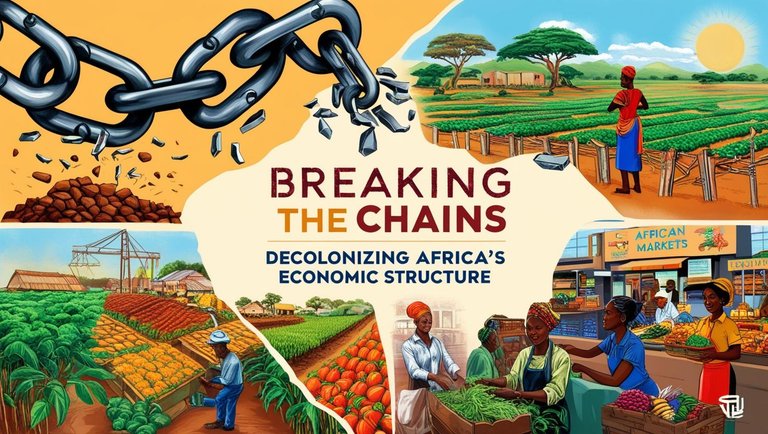Today, being Saturday, is primarily dedicated to working in our garden. However, today seems to be a little different. While browsing the internet this morning, before even thinking of heading outside, I came across an interesting YouTube video discussing the decolonization of Africa's economic structure. I found the content and discussion particularly engaging, as it addressed issues plaguing African nations like a persistent curse. No one can underestimate the role of economics in national development. Any nation that fails to get its economic structure right is subjected to hardship, poverty, and marginalization by more powerful states.
It is true that African nations gained independence long ago, but the presence of colonial masters still lingers. These colonial masters may not be physically present, nor do they station troops at our borders, but the reality remains that they indirectly control our economies and other aspects of our lives through their various policies and incentives targeted at African nations.
It is often said that a nation that can not feed itself is vulnerable to political, economic, and energy crises. Almost all African nations depend on European or Western countries for food imports. It is even more disheartening that African nations attempting to rise above this dependency often face both internal and external crises.
Although we talk about farming and producing our own food, we still rely on fertilizers and chemicals from overseas to grow crops. While this approach may solve immediate problems, it creates long-term challenges. The excessive use of chemical fertilizers depletes soil nutrients, making it less fertile for subsequent planting seasons. This forces us to rely even more on fertilizers, which cause further damage. When this system fails, we end up importing even more food from abroad. As African nations, we need to prioritize food security to achieve true independence. We should be able to feed ourselves as a continent. If we must import food, it should only be items that can not grow on our soil, and such imports should be minimal.

Economically, we are still reliant on European and Western countries for loans and technological advancements. In return, they impose policies that do not align with our needs but instead serve their interests. These policies ensure that we lose access to our resources while being dictated on how to use the funds we receive. They ensure our currencies remain weak, enabling them to buy our raw materials cheaply. We then depend on importing finished goods made from those raw materials.
What can we do to achieve total economic independence? As African nations, we need to invest in Pan-African industrial policies. Instead of merely assembling goods imported from developed nations, we must focus on building industries from scratch. We need partnerships that are African-oriented, where infrastructure development is supported while we supply the raw materials needed.
This shift requires unity, vision, and commitment to ensuring that our economies serve our people rather than perpetuating dependence on external powers.